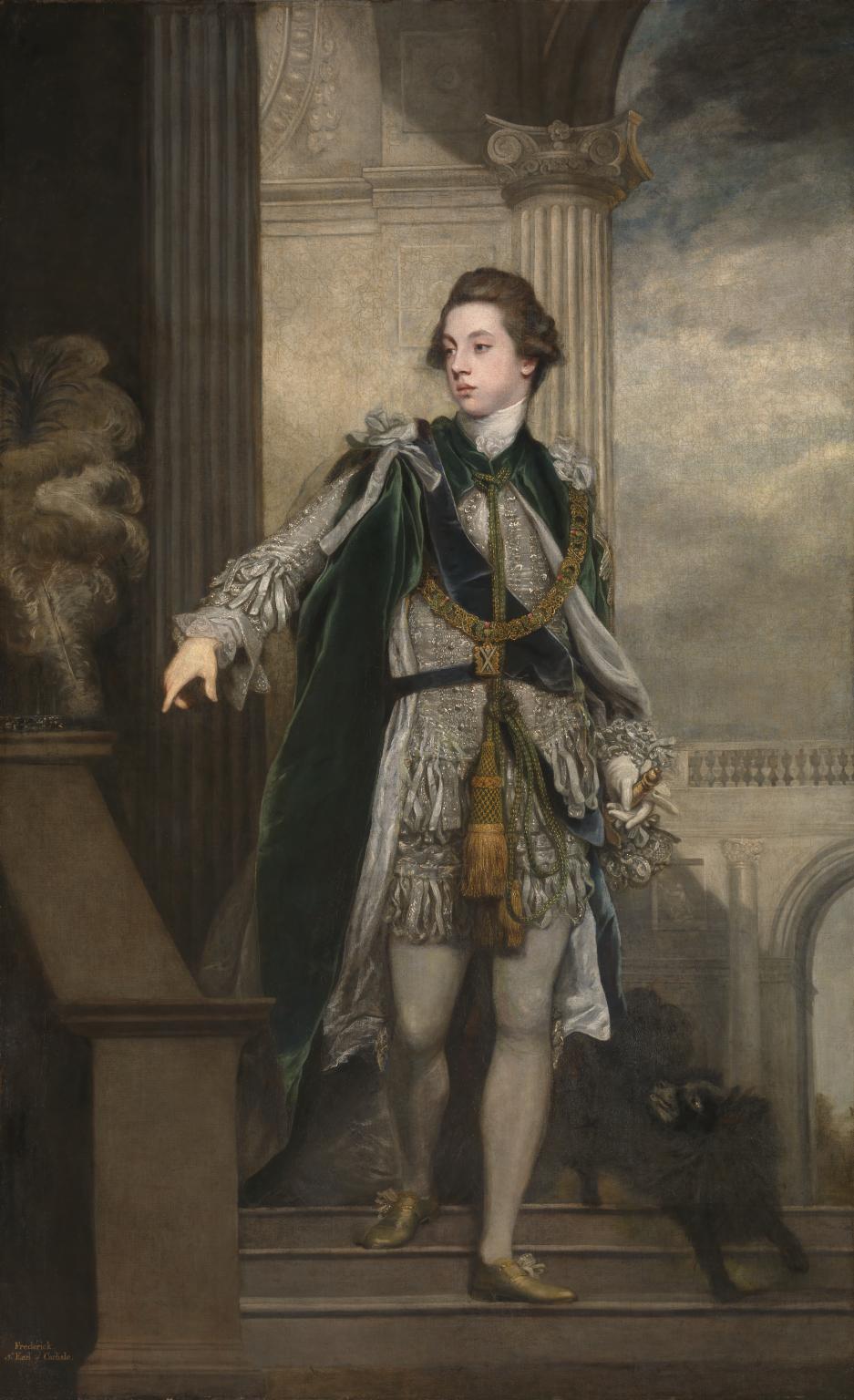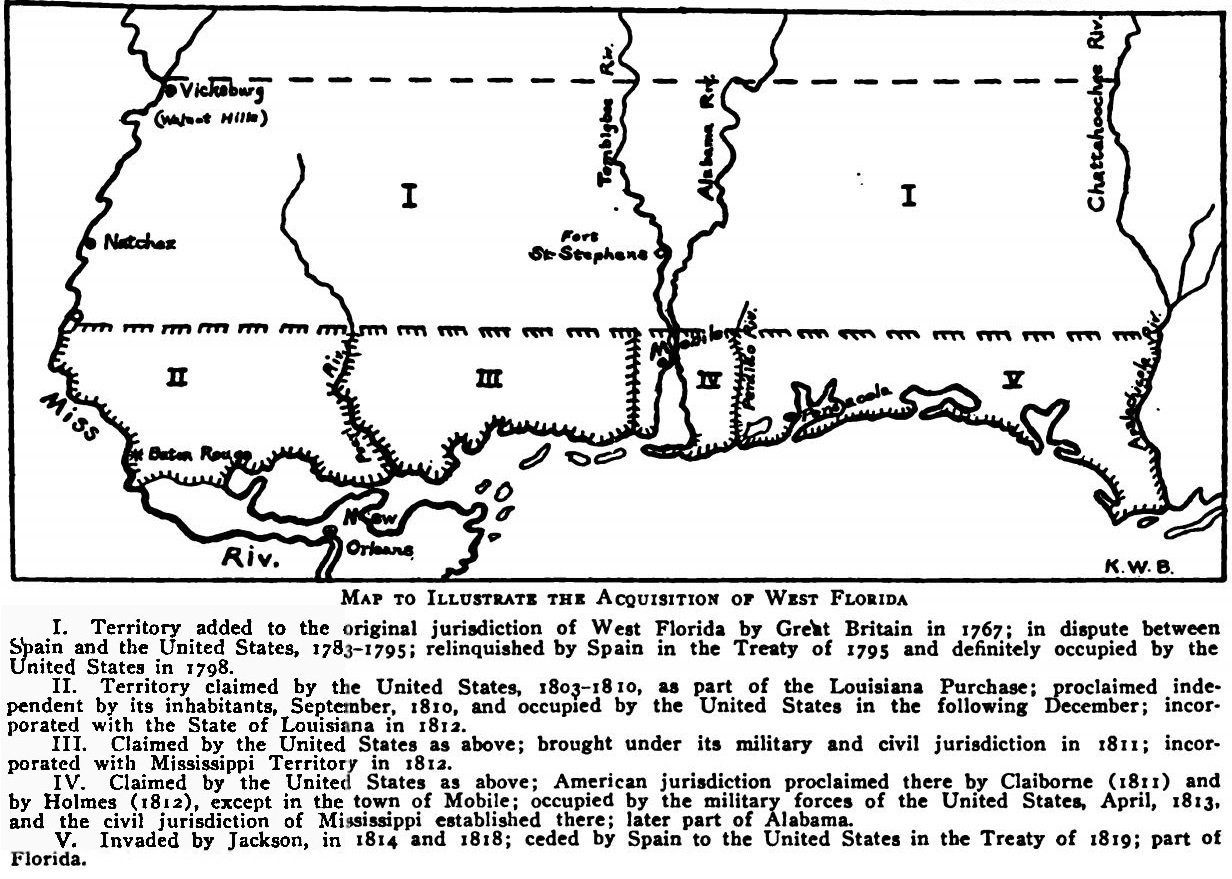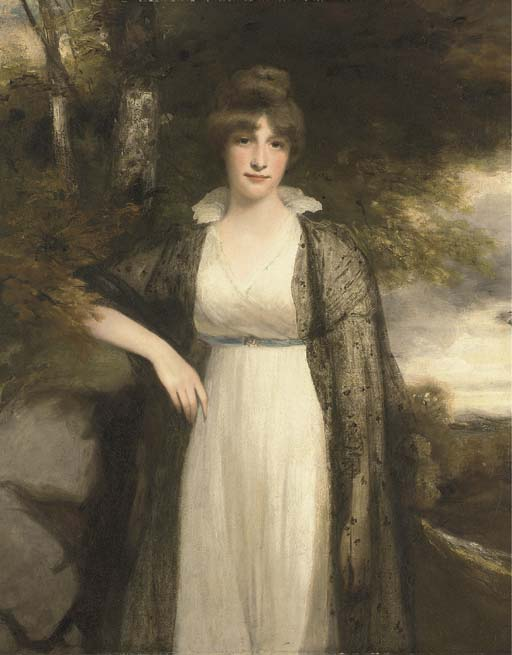|
Carlisle Peace Commission
The Carlisle Peace Commission was a group of British peace commissioners who were sent to North America in 1778 to negotiate terms with the rebellious Continental Congress during the American Revolutionary War. The commission carried an offer of self-rule, including parliamentary representation within the British Empire. The Second Continental Congress, aware that British troops were about to be withdrawn from Philadelphia, insisted on demanding full independence, which the commission was not authorised to grant. The Peace Commission marked the first time that the British government formally agreed to negotiate with Congress. A previous informal attempt at negotiation, now known as the Staten Island Peace Conference, had taken place in 1776. Background The first attempt at negotiation between Great Britain and the rebellious Thirteen Colonies after the outbreak in April 1775 of the American War of Independence took place in September 1776, when a committee from the Second Co ... [...More Info...] [...Related Items...] OR: [Wikipedia] [Google] [Baidu] |
Massachusetts Government Act
The Massachusetts Government Act (14 Geo. 3 c. 45) was passed by the Parliament of Great Britain, receiving royal assent on 20 May 1774. The act effectively abrogated the 1691 charter of the Province of Massachusetts Bay and gave its royally-appointed governor wide-ranging powers. The colonists said that it altered, by parliamentary fiat, the basic structure of colonial government, vehemently opposed it, and would not let it operate. The act was a major step on the way to the start of the American Revolution in 1775. Background The Act is one of the ''Intolerable Acts'' (also known as ''Repressive Acts'' and ''Coercive Acts''), which were designed to suppress dissent and restore order in Massachusetts. In the wake of the Boston Tea Party, the British Parliament launched a legislative offensive against Massachusetts to control its errant behavior. British officials believed that their inability to control Massachusetts was partly rooted in the highly-independent nature of its loca ... [...More Info...] [...Related Items...] OR: [Wikipedia] [Google] [Baidu] |
York, Pennsylvania
York ( Pennsylvania Dutch: ''Yarrick''), known as the White Rose City (after the symbol of the House of York), is the county seat of York County, Pennsylvania, United States. It is located in the south-central region of the state. The population within York's city limits was 43,718 at the 2010 census, a 7.0% increase from the 2000 census count of 40,862. When combined with the adjacent boroughs of West York and North York and surrounding Spring Garden, West Manchester, and Springettsbury townships, the population of Greater York was 108,386. York is the 11th largest city in Pennsylvania. History 18th century York, also known as Yorktown in the mid 18th to early 19th centuries, was founded in 1741 by settlers from the Philadelphia region and named for the English city of the same name. By 1777, most of the area residents were of either German or Scots-Irish descent. York was incorporated as a borough on September 24, 1787, and as a city on January 11, 1887. York served ... [...More Info...] [...Related Items...] OR: [Wikipedia] [Google] [Baidu] |
Henry Clinton (American War Of Independence)
General (United Kingdom), General Sir Henry Clinton, Knight Companion of the Order of the Bath, KB (16 April 1730 – 23 December 1795) was a British Army officer and politician who sat in the House of Commons between 1772 and 1795. He is best known for his service as a general during the American Revolutionary War, American War of Independence. First arriving in Boston in May 1775, from 1778 to 1782 he was the British Commander-in-Chief, North America, Commander-in-Chief in North America. In addition to his military service, due to the influence of his cousin Henry Pelham-Clinton, 2nd Duke of Newcastle, he was a Member of Parliament for many years. Late in life he was named Governor of Gibraltar, but died before assuming the post. Early life Henry Clinton was born on 16 April 1730, to Admiral George Clinton (Royal Navy officer), George Clinton and Anne Carle, the daughter of a general.#Willcox, Willcox, 1964, p. 5. Early histories claimed his birth year as 1738, a date widely ... [...More Info...] [...Related Items...] OR: [Wikipedia] [Google] [Baidu] |
Franco-American Alliance
The Franco-American alliance was the 1778 alliance between the Kingdom of France and the United States during the American Revolutionary War. Formalized in the 1778 Treaty of Alliance, it was a military pact in which the French provided many supplies for the Americans. The Netherlands and Spain later joined as allies of France; Britain had no European allies. The French alliance was possible once the Americans captured a British invasion army at Saratoga in October 1777, demonstrating the viability of the American cause. The alliance became controversial after 1793 when Britain and Revolutionary France again went to war and the U.S. declared itself neutral. Relations between France and the United States worsened as the latter became closer to Britain in the Jay Treaty of 1795, leading to an undeclared Quasi War. The alliance was defunct by 1794 and formally ended in 1800. Background France had been left deeply alarmed by the British success in the Seven Years' War and beli ... [...More Info...] [...Related Items...] OR: [Wikipedia] [Google] [Baidu] |
Treaty Of Alliance (1778)
The Treaty of Alliance (french: traité d'alliance (1778)), also known as the Franco-American Treaty, was a defensive alliance between the Kingdom of France and the United States formed amid the American Revolutionary War with Great Britain. It was signed by delegates of King Louis XVI and the Second Continental Congress in Paris on February 6, 1778, along with the Treaty of Amity and Commerce and a secret clause providing for the entry of other European allies; together these instruments are sometimes known as the Franco-American Alliance or the Treaties of Alliance. The agreements marked the official entry of the United States on the world stage, and formalized French recognition and support of U.S. independence that was to be decisive in America's victory. The Treaty of Alliance was signed immediately after the Treaty of Amity and Commerce, in which France was the first nation to formally recognize the U.S. as a sovereign nation;Morocco was the first country to ''de facto' ... [...More Info...] [...Related Items...] OR: [Wikipedia] [Google] [Baidu] |
Richard Jackson (colonial Agent)
Richard Jackson, KC (c. 1721 – 6 May 1787), nicknamed "Omniscient Jackson", was a British lawyer and politician who sat in the House of Commons from 1762 to 1784. A King's Counsel, he acted as Official Solicitor or counsel of the Lords Commissioners for Trade and Plantations, owner of lands in New England, and colonial agent of Connecticut. Jackson was called to the bar in 1744; he became a bencher of Lincoln's Inn in 1770 and its treasurer in 1780. He was a teacher of law in the Inner and Middle Temples; among his students was William Franklin, son of Benjamin Franklin. Jackson was a collaborator in Franklins' political interests during their London years. He was also Member of Parliament for Weymouth and Melcombe Regis from 1762 to 1768 and for New Romney from 1768 until 1784, and was one of the Lords of the Treasury In the United Kingdom there are at least six Lords Commissioners of His Majesty's Treasury, serving as a commission for the ancient office of Treasure ... [...More Info...] [...Related Items...] OR: [Wikipedia] [Google] [Baidu] |
Horace Walpole, 4th Earl Of Orford
Horatio Walpole (), 4th Earl of Orford (24 September 1717 – 2 March 1797), better known as Horace Walpole, was an English writer, art historian, man of letters, antiquarian, and Whig politician. He had Strawberry Hill House built in Twickenham, southwest London, reviving the Gothic style some decades before his Victorian successors. His literary reputation rests on the first Gothic novel, '' The Castle of Otranto'' (1764), and his ''Letters'', which are of significant social and political interest. They have been published by Yale University Press in 48 volumes. In 2017, a volume of Walpole's selected letters was published. The youngest son of the first British Prime Minister, Sir Robert Walpole, 1st Earl of Orford, he became the 4th and last Earl of Orford of the second creation on his nephew's death in 1791. Early life: 1717–1739 Walpole was born in London, the youngest son of British Prime Minister Sir Robert Walpole and his wife Catherine. Like his father, he rece ... [...More Info...] [...Related Items...] OR: [Wikipedia] [Google] [Baidu] |
West Florida
West Florida ( es, Florida Occidental) was a region on the northern coast of the Gulf of Mexico that underwent several boundary and sovereignty changes during its history. As its name suggests, it was formed out of the western part of former Spanish Florida (East Florida formed the eastern part, with the Apalachicola River as the border), along with lands taken from French Louisiana; Pensacola became West Florida's capital. The colony included about two thirds of what is now the Florida Panhandle, as well as parts of the modern U.S. states of Louisiana, Mississippi, and Alabama. Great Britain established West and East Florida in 1763 out of land acquired from France and Spain after the Seven Years' War. As the newly acquired territory was too large to govern from one administrative center, the British divided it into two new colonies separated by the Apalachicola River. British West Florida included the part of formerly Spanish Florida which lay west of the Apalachicola, as wel ... [...More Info...] [...Related Items...] OR: [Wikipedia] [Google] [Baidu] |
George Johnstone (Royal Navy Officer)
George Johnstone (1730 – 24 May 1787) was a Royal Navy officer who saw service during the War of the Austrian Succession, the Seven Years' War and the American War of Independence, rising to the rank of post-captain and serving for a time as commodore of a British naval squadron. In a multifaceted career he was also a member of parliament, a director of the East India Company, a member of the Carlisle Peace Commission and the first Governor of West Florida from 1763 until 1767. Johnstone was born into a gentry family in 1730, and embarked on a naval career. Early in his service there occurred several incidents which revealed both positive and negative aspects of his character. He was involved in encounters with the enemy where he was praised for his bravery, and incidents where he was censured for disobedience. He rose through the ranks to his own commands and had some success with small cruisers against enemy merchants and privateers. After the end of the Seven Years' War he ... [...More Info...] [...Related Items...] OR: [Wikipedia] [Google] [Baidu] |
Frederick Howard, 5th Earl Of Carlisle
Frederick Howard, 5th Earl of Carlisle (28 May 1748 – 4 September 1825) was a British peer, statesman, diplomat, and author. Life He was the son of Henry Howard, 4th Earl of Carlisle and his second wife Isabella Byron. His mother was a daughter of William Byron, 4th Baron Byron and his wife Frances Berkeley, a descendant of John Berkeley, 1st Baron Berkeley of Stratton. She was also a sister of William Byron, 5th Baron Byron and a great-aunt of George Gordon Byron, 6th Baron Byron, the poet. In 1798, Carlisle was appointed guardian to Lord Byron who later lampooned him in ''English Bards and Scotch Reviewers''. During his youth Carlisle was mentored by George Selwyn and was chiefly known as a man of pleasure and fashion. He was created a Knight of the Thistle in 1767, and entered the House of Lords in 1770. After he had reached thirty years of age, his appointment on a Commission sent out by Frederick North, Lord North, to attempt a reconciliation with the Thirteen Co ... [...More Info...] [...Related Items...] OR: [Wikipedia] [Google] [Baidu] |
William Eden, 1st Baron Auckland
William Eden, 1st Baron Auckland, PC (Ire), FRS (3 April 174528 May 1814) was a British diplomat and politician who sat in the House of Commons from 1774 to 1793. Early life A member of the influential Eden family, Auckland was a younger son of Sir Robert Eden, 3rd Baronet, of Windlestone Hall, County Durham, and Mary, daughter of William Davison. His brothers included Sir John Eden, 4th Baronet, also an MP; Sir Robert Eden, 1st Baronet, of Maryland, the last royal Governor of Maryland; and Morton Eden, 1st Baron Henley, diplomat. He was educated at Durham School, Eton and Christ Church, Oxford, and was called to the bar, Middle Temple, in 1768. Career In 1771 Auckland published ''Principles of Penal Law'', and soon became a recognized authority on commercial and economic questions. In 1772 he took up an appointment as Under-Secretary of State for the North, a post he held until 1778. He was Member of Parliament for Woodstock from 1774 to 1784 and served as a Lord of Trade f ... [...More Info...] [...Related Items...] OR: [Wikipedia] [Google] [Baidu] |




_-_Jonathan_Richardson_the_Elder_(Casa-Museu_Medeiros_e_Almeida).png)

